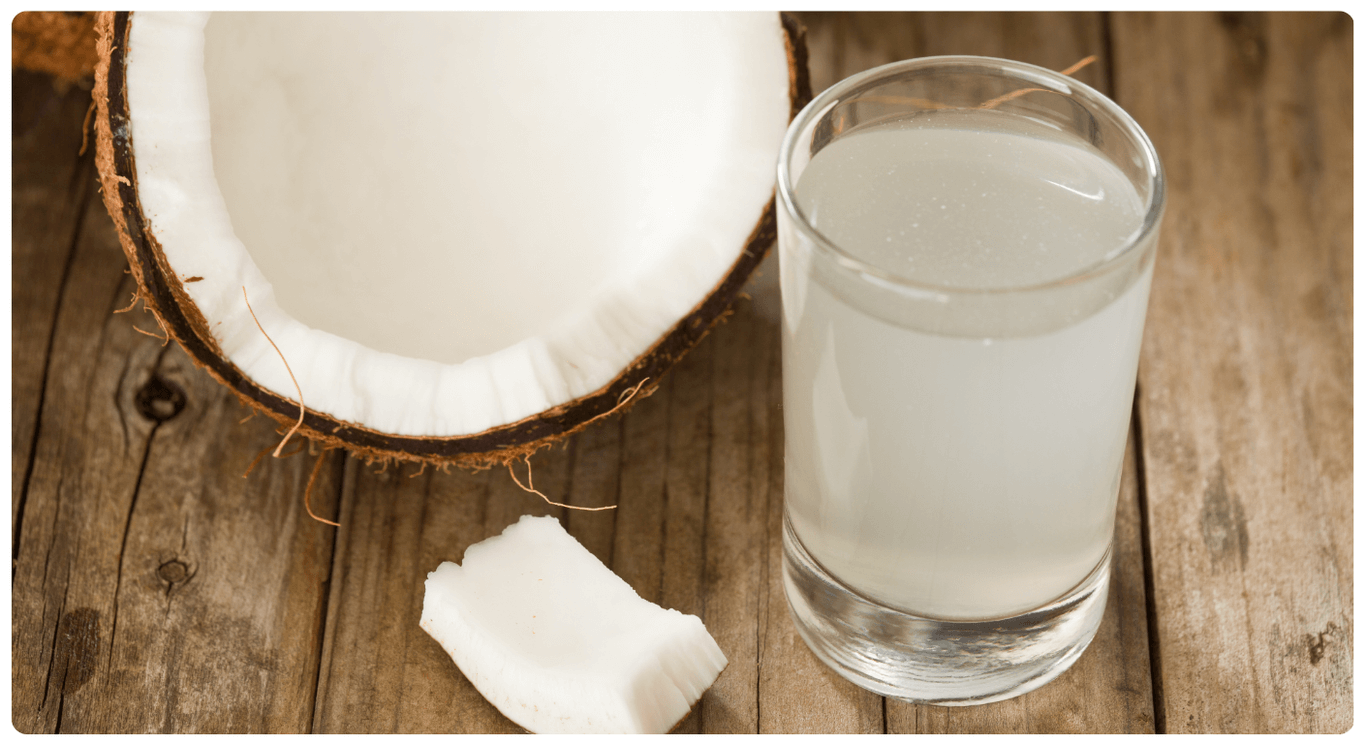Is Coconut Water Hydrating?
Coconut water has gained popularity as a healthy and natural beverage option, often hailed for its hydrating properties. But the question remains: Is coconut water hydrating? Let’s explore its benefits, how it compares to other hydration sources, and its overall impact on your health.
The Role of Electrolytes in Hydration
One of the primary reasons coconut water is considered a great hydrating drink is its high electrolyte content. These minerals, including potassium, sodium, magnesium, and calcium, play a vital role in maintaining fluid balance in the body. They help replenish the electrolytes lost during physical exertion or dehydration, making coconut water a powerful rehydration option.
- Potassium: Coconut water contains more potassium than a banana, which helps regulate fluid balance and muscle function.
- Magnesium and Calcium: These electrolytes support bone health and muscle function, making coconut water beneficial not just for hydration, but also for muscle recovery.
- Sodium: Though lower than in sports drinks, the sodium content in coconut water is sufficient to aid hydration after exercise.
Coconut water’s combination of electrolytes means it is absorbed more effectively by the body compared to plain water. This makes it an excellent choice for rehydration after intense workouts or during illness. However, coconut water’s composition varies slightly depending on the brand, so it’s essential to check for any added sugars or preservatives. For more detailed insights on coconut water’s hydration benefits, you can check resources like Healthline and WebMD.
Coconut Water vs. Other Hydration Options
While coconut water is a natural alternative to sugary sports drinks, it’s essential to compare its hydration benefits with other common beverages. Coconut water is often lauded for its low-calorie content and natural electrolyte profile, but how does it fare against plain water and commercial sports drinks?
- Water: Water remains the most basic and effective way to stay hydrated. It has no calories or sugars, but it lacks the electrolytes that coconut water provides. For hydration in everyday situations, water is the best choice, but it doesn’t replenish electrolytes after intense physical activity.
- Sports Drinks: Commercial sports drinks can be helpful in replenishing electrolytes but are often loaded with sugars and artificial flavors. Unlike coconut water, many sports drinks add excessive sugar, which can contribute to weight gain and other health concerns when consumed in excess. Coconut water, however, provides a more natural hydration option without the added sugars.
Coconut water is a great middle-ground—it helps replace electrolytes lost through exercise while remaining lower in sugar than most sports drinks. It’s a more natural, nutrient-packed option for people looking to stay hydrated without extra calories or additives.
Is Coconut Water Suitable for Everyone?
While coconut water is generally safe for most people, certain individuals may need to be cautious with their intake. Its high potassium content, while beneficial for most, can be problematic for some health conditions.
- Kidney Disease: People with kidney problems or those on potassium-lowering medications should consult with a doctor before consuming coconut water regularly. Excessive potassium can strain the kidneys, so moderation is key.
- Low Sodium Diets: Those following a low-sodium diet may need to monitor their coconut water intake, as it does contain a moderate amount of sodium, which could contribute to an excess of sodium in the diet.
For most individuals, coconut water is a healthy alternative to sugary drinks, but as with anything, it’s important to consume it in moderation. Always check with a healthcare provider if you have underlying health concerns that could affect your hydration needs. For more advice on hydration, refer to sources such as Mayo Clinic.
The Benefits of Coconut Water Beyond Hydration
While hydration is the most common reason people turn to coconut water, it also offers other health benefits. These include its ability to:
- Boost Antioxidants: Coconut water contains cytokines, which are plant hormones that help with cell growth and repair. These antioxidants help fight free radicals in the body and may reduce inflammation.
- Aid Digestion: The magnesium content in coconut water can help improve digestion by relaxing muscles and promoting healthy bowel function.
- Support Heart Health: The potassium in coconut water has been shown to help lower blood pressure, improving heart health over time.
Unlike sugary sodas or juices, coconut water offers these health benefits without the added calories. It’s a great beverage choice for those looking to maintain a healthy, balanced diet while staying hydrated.
FAQs
1. Can coconut water replace water for hydration?
Coconut water can be a great hydration aid but shouldn’t replace water entirely. For everyday hydration, water remains the best choice. However, coconut water is perfect for post-workout recovery or after illness.
2. Is coconut water healthy for everyone?
Coconut water is generally safe for most people, but those with kidney issues or who need to manage potassium levels should consult their healthcare provider before regularly consuming it.
3. How much coconut water should I drink in a day?
For most people, 1-2 cups of coconut water per day is enough to enjoy the hydration and health benefits. Consuming more than this may result in excess potassium, which could be harmful in some cases.
Conclusion
In conclusion, coconut water is a hydrating, nutrient-rich drink that offers a natural way to replenish electrolytes and support overall health. It provides an excellent alternative to sugary sports drinks and sodas, with fewer calories and no artificial ingredients. Its high potassium content, combined with magnesium and sodium, makes it a powerful option for rehydration after physical activity or during illness. However, it should be consumed in moderation, especially for those with kidney issues or potassium concerns.
For more information on how coconut water supports hydration, visit trusted sources like Healthline and Mayo Clinic.
